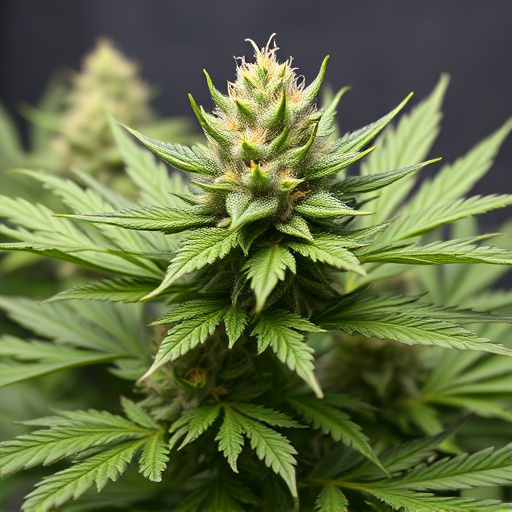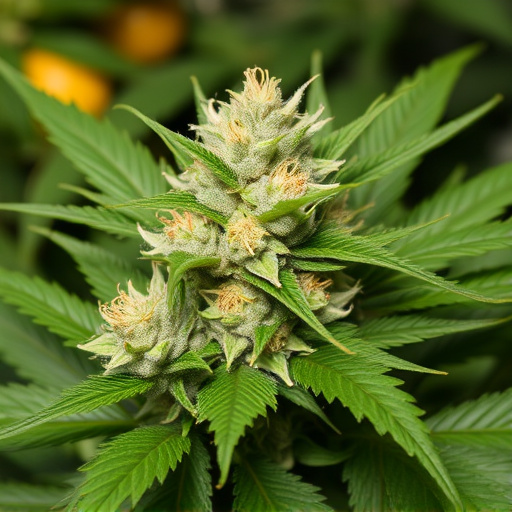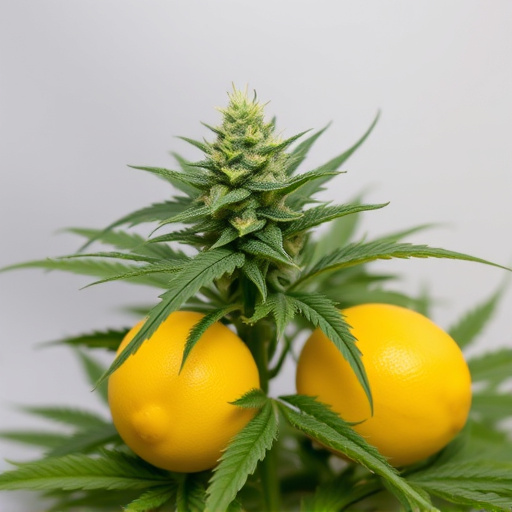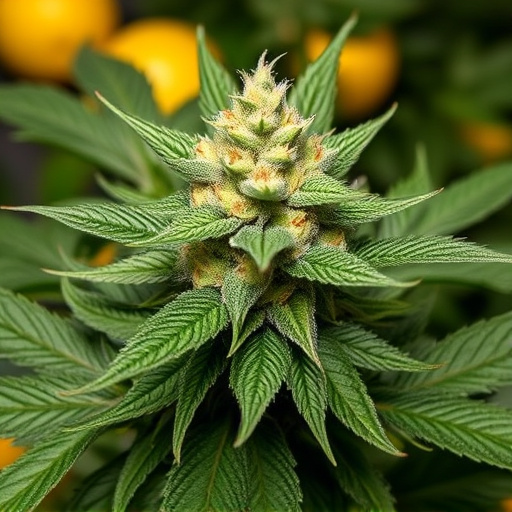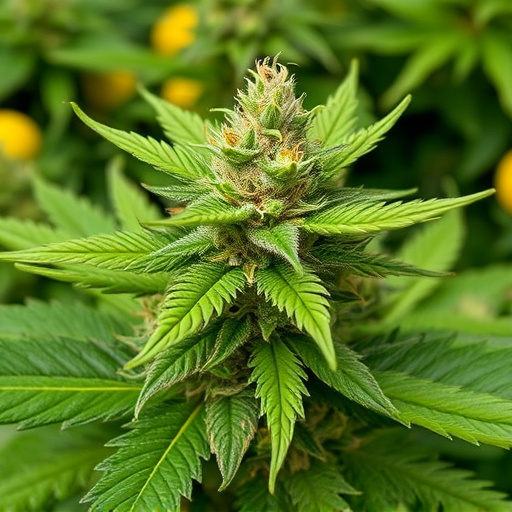Lemon cannabis strains have gained significant attention for their unique aroma, flavor, and therapeutic benefits. Rich in limonene, these strains offer calming effects, reduce anxiety, depression, insomnia, and seizure disorders, as well as anti-inflammatory properties for conditions like arthritis. Despite growing legalization, strict regulations globally limit medical access to lemon cannabis and other promising strains. Future research should focus on expanding understanding of cannabis chemistry, including terpenes and cannabinoids, through rigorous clinical trials to provide evidence-based insights into safe and effective use, potentially leading to broader acceptance within modern medicine.
The medical potential of cannabis flower has gained significant attention, with lemon cannabis strains emerging as a prominent focus. This article delves into the therapeutic benefits of these unique varieties, specifically exploring their application in treating various medical conditions. We will examine the scientific basis for their effectiveness, focusing on lemon strains’ distinct properties and advantages. Additionally, we’ll discuss legal considerations and future research directions to provide a comprehensive overview of this promising area.
- Understanding the Therapeutic Potential of Cannabis Flower: A Look at Lemon Strains
- Medical Applications and Benefits of Lemon Cannabis Strains
- Navigating Legalities and Future Research Directions
Understanding the Therapeutic Potential of Cannabis Flower: A Look at Lemon Strains
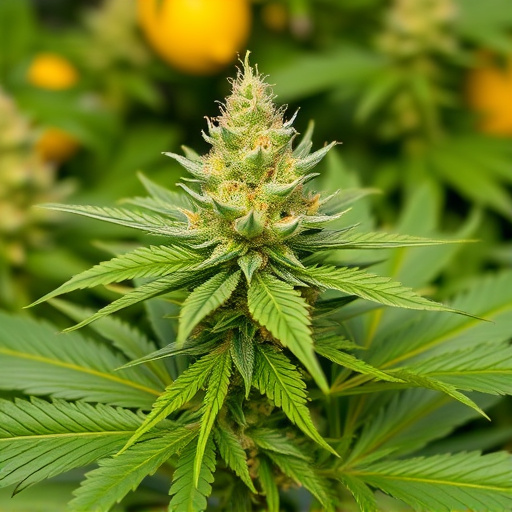
The therapeutic potential of cannabis flower has gained significant attention, especially with the growing interest in natural remedies and alternative treatments. Lemon cannabis strains stand out for their unique properties that offer a range of medical benefits. These strains are known for their distinctive citrusy aroma and flavor, derived from high levels of limonene, a terpene known for its calming and anti-inflammatory effects.
Lemon strains have been studied for their ability to alleviate symptoms associated with anxiety, depression, and insomnia. They also possess anti-seizure properties, making them potentially beneficial for patients suffering from epilepsy. Furthermore, the anti-inflammatory nature of lemon cannabis helps reduce pain and swelling in conditions like arthritis. The specific profile of these lemon strains makes them a popular choice among medical users seeking effective and targeted treatment options.
Medical Applications and Benefits of Lemon Cannabis Strains
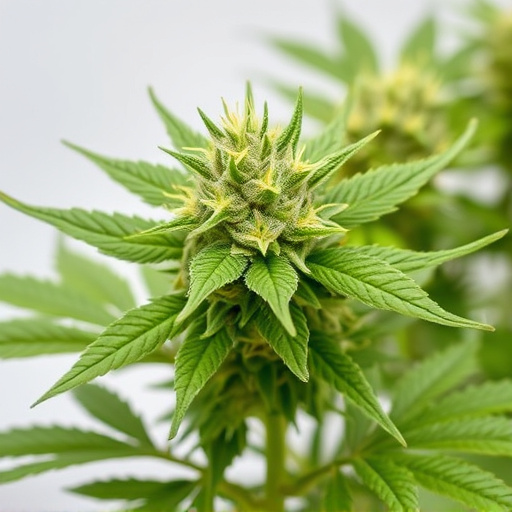
Lemon cannabis strains have gained significant attention for their unique medical applications and benefits. These varieties, known for their distinct citrusy aroma and flavor, offer a range of therapeutic properties that make them valuable in modern medicine. The primary compound of interest is terpenoid limonene, which gives lemon strains their characteristic scent. Limonene has been linked to reduced anxiety, improved mood, and enhanced cognitive function, making it beneficial for patients dealing with stress, depression, or cognitive impairments.
Moreover, lemon cannabis strains are praised for their potential anti-inflammatory and analgesic effects, providing relief from chronic pain, arthritis, and other inflammatory conditions. The combination of these therapeutic properties makes lemon strains a popular choice among medical users seeking natural remedies. As research continues to explore the full extent of cannabis’s medicinal capabilities, lemon strains stand out as a promising area of study, offering both flavor and potential health benefits.
Navigating Legalities and Future Research Directions

Navigating the legal landscape surrounding cannabis is a complex task, varying significantly across regions and countries. This complexity presents both challenges and opportunities for medical research. Despite increasing legalization and acceptance, there remain strict regulations that limit access to cannabis flower for medicinal purposes. These restrictions can hinder clinical trials and studies aimed at unlocking its therapeutic potential, especially for specific strains like lemon cannabis, known for their unique chemical profiles.
Future research directions in this field should focus on expanding scientific understanding of the plant’s chemistry, including the role of various terpenes and cannabinoids, such as THC and CBD, in different medical conditions. As more studies explore these areas, it becomes increasingly important to conduct rigorous clinical trials that can provide evidence-based insights into the safe and effective use of cannabis flower for a wide range of indications, potentially paving the way for broader acceptance and integration into modern medicine.
Lemon cannabis strains have shown significant therapeutic potential, offering a range of medical benefits. Their unique composition, rich in limonene and other beneficial compounds, makes them a valuable addition to the arsenal of natural remedies. As research continues, navigating legalities will be essential to unlock the full potential of lemon cannabis strains while ensuring their safe and effective use. Further studies are needed to explore their effectiveness across various medical conditions, expanding our understanding of these remarkable plants.








